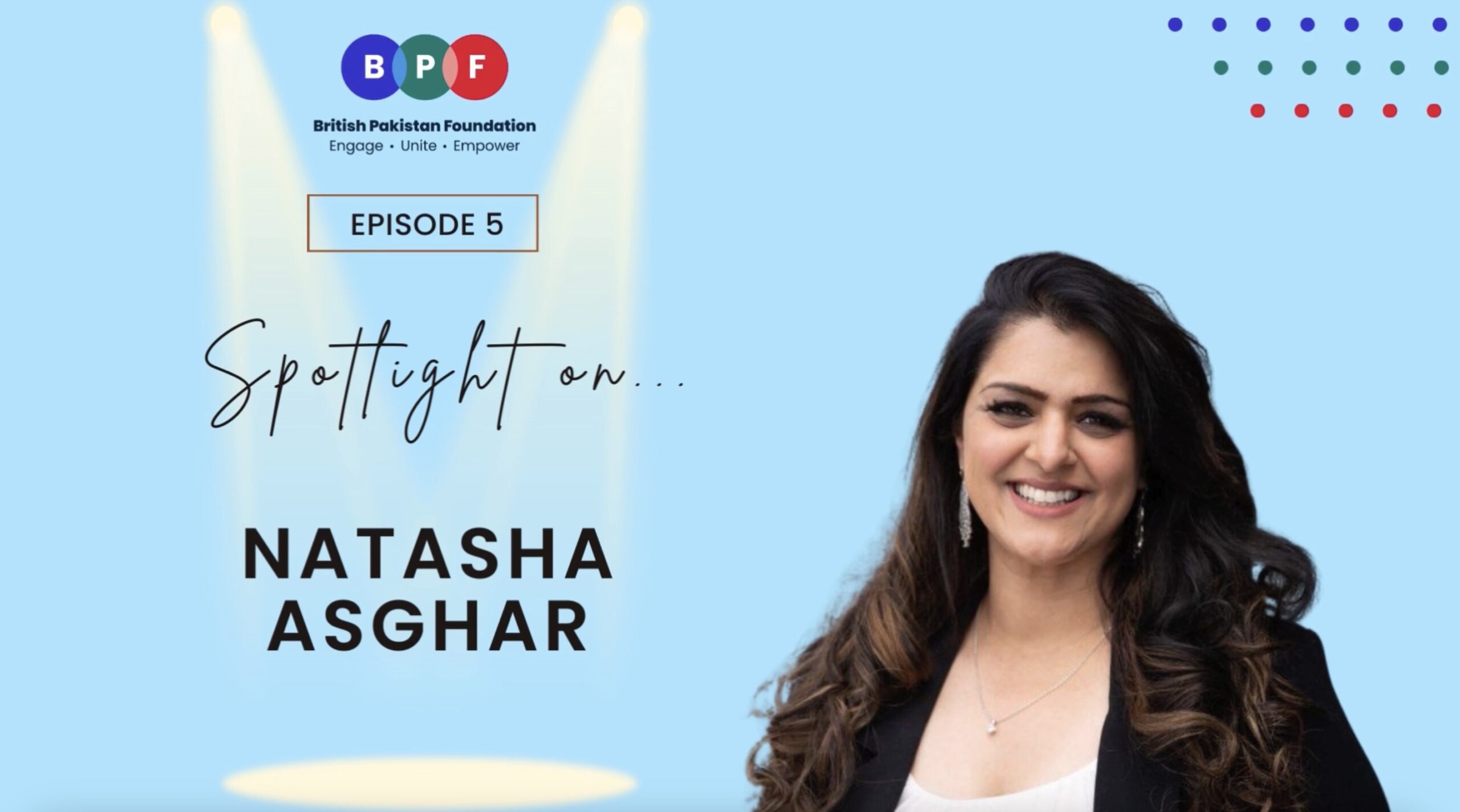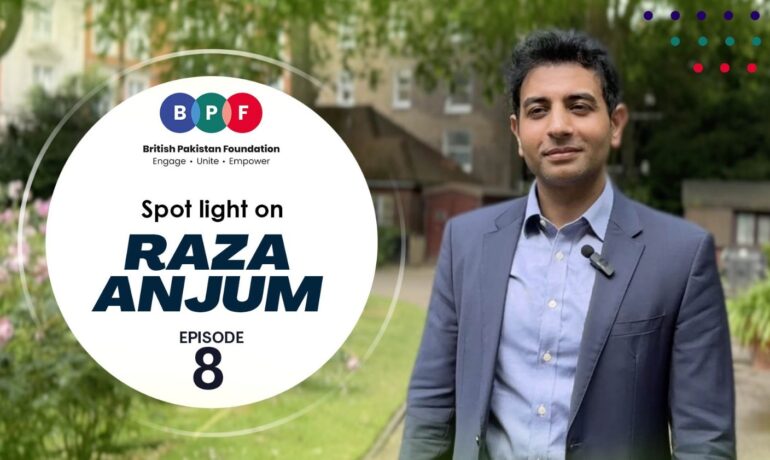Spotlight on Natasha Asghar
Not many people can say they have been successful in multiple career paths in life – yet, Natasha Asghar has managed just that. She has had a flourishing career in media as a television presenter and in the world of banking. But it’s in Politics where Natasha’s real passion lies. Following in her late father’s footsteps, Natasha became the first woman of colour to be elected in the Senedd (the Welsh Parliament), as the Welsh Conservative’s Shadow Minister for Transport and Technology. We chat to her about her career journey, being British Pakistani and tips she can impart with the aspiring politicians.
– You were a successful full time television presenter and then you became a politician. How did the transition from media to politics come about?
Amazingly I developed a passion for politics when I was doing my GCSE’S -which now feels like lightyears ago. I worked in the Welsh Assembly, House of Commons and European Parliament and really enjoyed it. However, I delved into finance after my graduation. Then, after four years as a banker I wanted to pursue a career in media, so worked in radio, print and then moved into TV.
I absolutely loved my time as a TV presenter and the media industry, but I have always had a burning passion for politics. Politics has always been strong in my family with my dad being a Member of the Welsh Parliament until his death and my grandfather being the first Muslim mayor of Brent (London.)
Following the tragic, sudden death of my dad in 2020, I thought long and hard about throwing my hat into the political ring once again following five previous attempts of standing for election.
After a lot of nudging and persuading, I decided to stand in the 2021 Welsh Parliament Election for my dad’s former South East Wales seat, which covers over 600,000 residents. It was a great honour to win the seat with residents across the region putting their faith in me as their voice in the Welsh Parliament.
Two years into the role and I am still loving every minute of it and I just hope I can do a good job for my constituents.
– Tell us more about your book Me, Myself & My Arranged Marriage.
Me, Myself and My Arranged Marriage is a modern take on the whole arranged marriage process. The protagonist is introduced to a series of bachelors through friends, family and colleagues. The reader is able to see and feel the entire process even if they have never experienced it before, and a lot of people going through it can relate to the story too.
Arranged marriage has historically received a lot of bad press and I wanted to demonstrate through this book that the arranged marriage process can be funny, frustrating, soul destroying for some, and entertaining all at the same time.
– Was the book inspired by any personal stories of your own?
Over the years my Mother has made it her mission to see me married off and has introduced me to over 200 bachelors. Much to her dismay none of them were ‘the one’ for me, but I did meet a variety of people along the way and the book reflects a lot of my own personal experiences. However, due to legal reasons I have to say the book is ‘part reality and part fiction.’ It’s up to the reader to decipher what they think is real and what is fiction.
– For the single British Pakistani women out there who are currently looking for a life partner and might be struggling like the protagonist of your book, any words of advice?
I would say – never give up hope. It’s said and believed that ‘we were all made in pairs’ and I believe that your Mr Right is out there. It may take more time for some, but never see it as a race because all good things come to those who wait and have (sabr) patience.
– How would you define your British Pakistani identity?
I feel that I have been bought up with the perfect balance of Eastern and Western values. My Maternal side is based in Pakistan and as a child I thoroughly enjoyed visiting my family who are spread all over Pakistan. We would begin in Karachi, then Islamabad to visit my Bari Ami Jee (My Maternal Grandmother) then head to Lahore to see my Uncle. I am fluent in Urdu and Punjabi alongside Hindi and after a lot of painstaking hours by my Mum I can cook pretty much all Pakistani dishes. My parents wanted to ensure like most immigrant parents that I never forgot my roots and they ensured that I was aware of my heritage and traditions.
– Being British Pakistani, what kind of challenges have you faced growing up and living in the UK?
I think most British born Pakistani’s like me would have experienced racism on some level and I was no different. It makes me so sad to hear that people are still facing racism in schools, places of work and even in their day to day lives whilst even walking down the street. We live in 2023 and the world has moved on, yet somehow racial slurs are still used by people to intimidate others and promote hate is just heartbreaking for me to see and hear.
– Currently, what issues are facing the British Pakistani community in your opinion?
Racism and prejudice are still sadly two of the big issues facing members of the British Pakistani community in Wales and the rest of the UK. Pakistani’s are very talented, hardworking and passionate people (you’ll understand what I mean when Pakistan is playing a cricket match.) However sadly Pakistani people are sadly more than often portrayed in a very negative light by the media and consequently many people tarnish the good work being done by prominent Pakistani’s by painting them with a negative brush, after a horrendous news headline comes out about a Pakistani who did something bad.It is grossly unfair and hurtful but it is a reality in todays world. Personally, I believe that there is a long way to go in tackling this, and it requires all of us to work together to stamp out hate and racism once and for all.
– How did it feel being named as one of BBC’s 100 women of 2021?
It was an absolute honour and came as a complete surprise. To be named alongside some really talented and trailblazing women from all corners of the world such as Rebel Wilson and Malala Yousavzai was an absolute privilege and a humbling experience.
– You are also the first woman of colour to be elected in the Senedd (Welsh Assembly). What kind of responsibility do you feel with this attachment?
I always say that I may be the first woman of colour to sit in the Welsh Parliament, but I most certainly do not want to be the last. One of my big desires is to see a more diverse Welsh Parliament and every day I try to do my best to encourage more people from all walks of life to stand in elections, get involved in politics and taken an interest because one day I will be gone and the next generation will be responsible for making a difference and shaping a better United Kingdom.
There is also an immense amount of pressure on me personally, I am not ashamed to say that a lot of people recognize my name due to the hard work and dedication carried out my my late Father for thirteen years and six months as a Member of Parliament. He was known by everyone as the politician who genuinely cared-So naturally the pressure is there to ensure that regardless of my responsibilities my constituents are my top priority.
– As a representative of the British Pakistani community in politics, if you could, how would you make a difference on behalf of the community?
I like to think I make a difference every single day by helping my constituents with their issues and concerns when they come to me from all communities and I actively try to inspire people from all communities,age groups and backgrounds to take an interest in British politics and get involved. Many people turn to me for help when they have nowhere else to go and have exhausted all other avenues. I get tremendous joy in helping people and solving their issues and hope by listening and helping, I am ultimately making a difference.
A lot of people are reluctant to join politics because they just don’t know where to start, what to do and how to get their foot through the door. But I always say, whenever I give a talk to Pakistani, Indian and Bangladeshi groups that regardless of your political affiliation its all about taking that first step. Don’t be fearful of what people will say,never fear losing an election or how you will be judged by other people. If you have a genuine desire to make a difference in peoples lives you can-You just need to take that first step.
– Being a woman in a male dominated world of politics (and that too, from a minority community), what kind of challenges have you faced?
Thankfully – and I touch wood when I say this – I haven’t experienced any racism of sexism in the world of politics. I am not saying it doesn’t happen because it most certainly does and I know many female politicians who have experienced it, but I have been fortunate enough not to be exposed to it.I don’t necessarily think politics is a male dominated world anymore. We have 26 women sitting in the Welsh Parliament and 34 men, and in the House of Commons there are 223 female MPs.
– For any aspiring politicians, particularly females, any tips on how to enter the world of politics?
My advice would be just go for it. If you are passionate about your community and have a desire to help and see change, get involved with a political party and stand in an election. It doesn’t have to be for parliament, you can put yourself forward for local council elections – putting you right at the heart of your community.
If that seems like a big first step, then I would suggest reaching out to your local politician to see if they can offer you work experience or get involved with your local political party. Being a frontline politician is not everyone’s cup of tea and that’s fine. There are plenty of roles that one can do which are highly influential in creating change and being part of the system.
– What are your aspirations when it comes to politics?
When it comes to my aspirations for South East Wales they are simple. I want to make South East Wales and Wales as a whole a better place. Two big things I have been continuously pushing for since being elected is the introduction of an All-Wales Travel Card and seeing my region turned into a tech hub. I hope to see both of those aspirations become a reality.
As for my career-My Dad always said to me when it came to my career (whatever industry I was in) that I should never forget I was born to break glass ceilings and yes, I am not what some would deem ‘typical’ in how I live my life. But regardless of what happens if I want to achieve something I should never let anyone or anything stand in my way of giving it my best shot. We only live once, so make it memorable and a life you’ll be proud to look back on when you are 100 years old.’
– If you were to become Mayor of London, what are the key changes you would focus on?
Whilst it was disappointing not to have made it further in this particular journey, it was a great experience and I firmly believe ambition is not something we should be ashamed of, nor should anyone shame us for it,
I knew that if I didn’t put my name forward now, it is something I would’ve regretted for the rest of my life.




